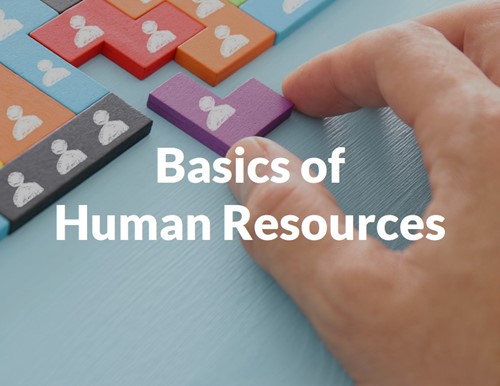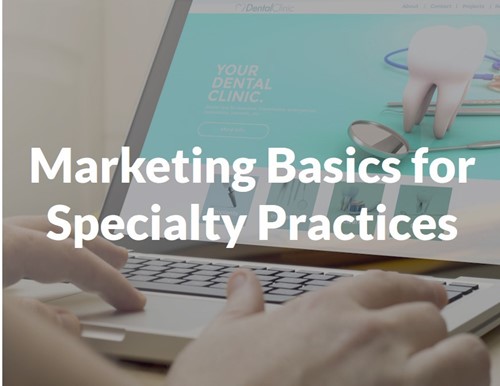ePM On-Demand CE Library



In this course you will learn about the office’s mission and policies, the qualities of an ideal staff member and teammate, types of meetings, PPI, your job manual, and your role’s key performance indicators (KPIs).

In this course, you will learn how to interact with patients throughout their entire visit, guiding them through the doctor’s exam, treatment presentation process, making financial arrangements, and scheduling their treatment.

As the hub of administrative activity, this course covers the primary responsibilities, including: overseeing the reception area, managing phones, confirming appointments, and coordination with clinical staff.

As the primary point of contact for new and existing patients this course covers how to, convert potential patients into new patients, pull new patients through the intake process, and best practices and guidelines for coordinating with patients.

In a speciality practice the patient coordinator is the primary point of contact for newly referred patients, and this course teaches the guidelines for scheduling and how to properly complete the intake process.

This course covers: the role of the financial coordinator, how to close a patient that has been passed, and how to make financial arrangements with patients.

This course covers: the basics of insurance plans, guidelines for filing insurance claims, guidelines for handling denials and filing appeals,
and general billing and collections guidelines.

The office manager is the one person responsible for most of the planning, organizing and oversight of the office. An office manager’s key function is to run and grow the practice with the doctor’s mission in mind. In this course, you will learn about the key managerial functions and duties of an office manager.

This the first in the HR series, and covers the critical functions of an HR department, including: managing employee personnel records, managing employee performance documentation, complying with non-discrimination and harassment regulations, proper compliance with safety and health regulations, and outsourcing key HR functions.

This the second in the HR series, and covers: applying non-discrimination laws and regulations to the recruitment/hiring process, successful methods of finding and recruiting applicants, how to determine the best applicants, methods for one-on-one recruitment interviews, and scripts for turning down or bringing on a candidate.

This the third in the HR series, and covers: the difference between onboarding and orientation, the process to properly onboard new employees, and detailed steps on how to properly deliver an orientation to new employees.

This course covers: the terms and concepts used in marketing and PR,
the various roles that staff will play in the marketing of the practice, the business side of marketing (including budgeting and administration), and how to do market research so that your marketing activities produce results

The average attrition rate is 8-10%, which is even more significant in a specialty practice since patients generally do not come in for regular care. In order to see growth, a specialty practice must plan and execute unique marketing and PR activities in order to generate enough new patients to outpace case completions and attrition rates. This course covers strategies on how to properly market in order to produce a regular flow of new patients, which is vital to the success and growth of any specialist’s office.

This course covers your primary objectives when building case acceptance, including how to:
establish and maintain a trusting and supportive relationship with patients, educate patients on their treatment options (building value and benefit as a result), help patients overcome financial and emotional barriers to treatment, and get patients scheduled to begin their treatment plans.

This course was specifically developed to increase implants placed and contains interactive lessons and videos on the following topics: tooth replacement options, comparison between bridges & implants, comparison between dentures & implants, effective communication techniques, advantages of dental implants, and
how to handle financial objections.

An emergency protocol will serve to classify levels of urgency so that you know when to schedule a patient, know what to tell the clinical staff to expect when the patient arrives, and to minimize the disruption to the schedule that all emergencies can cause. In this course you will learn proper triage and schedule tips to ensure a smoothly running schedule, and that emergency patients are able to be seen.

Employees and managers often have aversions to doing job performance reviews, considering them a “chore” or somehow confrontational. This comes from a poor understanding of how to deliver them, along with poor past experiences. This course covers: how to prepare for a performance review, how to deliver a performance review, and how to follow up after a review.

There are a handful of meeting types, each with its own special purpose, required attendees, and frequency. Each type of meeting should be held in accordance with a specific format so that the time spent meeting is impactful and not wasted. This course covers: daily huddles, look ahead meetings, staff meetings, management meetings, marketing meeting, and owners meetings.

There are many schedule modification and optimization strategies that you can consider to suit the specific needs of your community and practice. In this course, you will learn how to manage special schedules to optimize staffing levels against the seasonal demand in your community.

Whether you’re in a general or specialty practice, keeping your schedule running smoothly is directly related to how well you are coordinating with your patients and fellow staff. This course covers guidelines for optimizing patient flow, from the pre-appointment confirmation process, to post-appointment coordination.